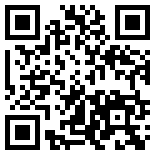雅思寫(xiě)作主題,,可以說(shuō)回歸傳統(tǒng),,討論電子媒體和紙質(zhì)出版物的存續(xù)問(wèn)題,。這個(gè)話題可以說(shuō)是國(guó)內(nèi)考生耳熟能詳?shù)模诒姸嗟目荚嚢ㄋ牧?jí)中,,都出現(xiàn)該主題的身影,。但是對(duì)于這個(gè)主題的討論,又往往欠缺周詳?shù)膶徱?,更何況要用英文短短數(shù)百字來(lái)說(shuō)清楚這個(gè)糾纏不清的話題,。
20191012 電子書(shū)和紙質(zhì)書(shū)的使用
More and more people use computers and other electronic devices to gain information. Therefore, there is no need to use print books, magazines or newspapers. To what extent do you agree or disagree?
The emergence of smart phones and some other mobile electronic devices enables modern people to obtain information anywhere even in galloping express trains. Burying head in electronic devices and browsing the webpage to get entertained and informed is becoming widespread for people no matter old and young. This gives rise to a notion that traditional prints books and magazines are outdated and no longer necessary. For me, I doubt the legitimacy of this statement.
Indisputably, there are some benefits of reading through electronic devices. For example, it is convenient. Traditional books are usually bulky and clumsy. It is unlikely for you to take voluminous books strolling in a leisurely trip. But electronic books can liberate you from the heavy burden. The most impressive advantage is that electronic devices can help you to be connected to the internet where mountain information is waiting for your inspection. Don’t mention the relatively lower prices of electronic books. It is common that you just need to spend one tenth of the tradition book price buying a newly released electronic bestseller.
All these advantages seem to have put paper books in shadow. Unfortunately, that is only an incomplete part of the picture. Somebody did have announced the dusk of print books, but the reality has given them a deadly blow. As a matter of fact, statistics show that billions of people still stick to their reading habit of traditional books while electronic reading style just provides an option, far from being of dominance. This makes us plunge into deep thinking: why? What makes traditional books irreplaceable?
The irreplaceability may, in my view, boils down to two points. At first, it is “experience” that makes traditional print books not displaced from people’s priority lists. To obtain information is of the functions of reading, but not the only one. Otherwise millions of public libraries will soon disappear for their limited capacity of storing information compared with electronic devices. When we read, we experience many elements in reading: the rustling of pages, the paper quality and even the sharing of books with friends. Another point is that print books are sustainable. Electronic devices are expensive and they will expire, say, when they run out of electricity and the components themselves may wear out in lapse of time. But traditional books will last for a longer time.
愛(ài)品網(wǎng) IPNO.CN
b2b免費(fèi)推廣平臺(tái)
掃掃有驚喜



